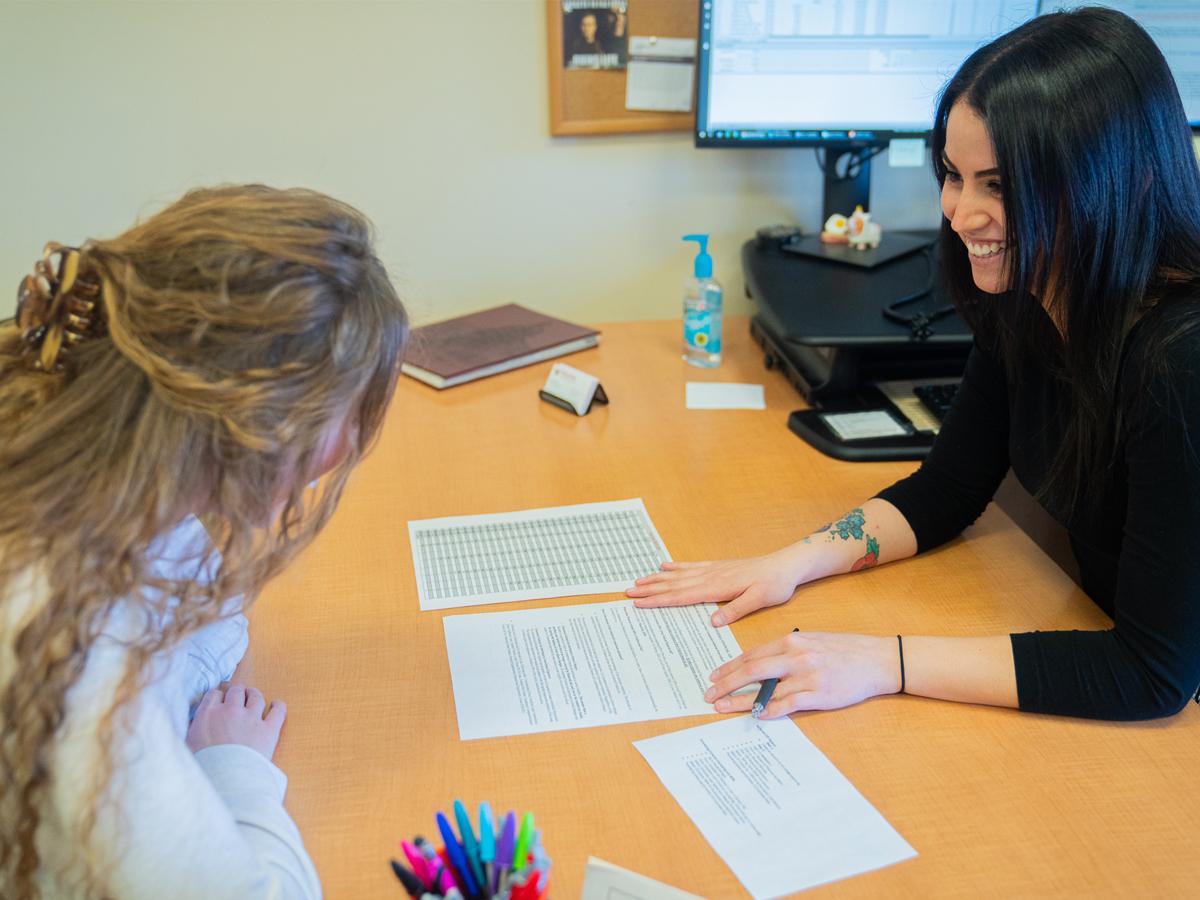The financial aid process is a crucial part of applying to college, as it determines the final cost of tuition for students across the country. The cost of a college education can fluctuate widely, with tuition costs, fees, and financial aid opportunities differing amongst universities. The universities with the best financial aid offer a combination of need and merit-based scholarships to help ease the burden of tuition costs. Yet, with so many scholarships available, maximizing your financial aid eligibility can quickly become complicated and confusing. Here at Western Colorado University, we are committed to helping you find the most efficient and cost-effective path toward earning your degree.
How Does Financial Aid Work?
There are two forms of financial aid available for high school students: government financial aid and non-government aid. Applying for federal financial aid requires filling out the Free Application for Federal Student Aid (FAFSA). Many states and colleges set deadlines by which you must submit your FAFSA form to be considered for aid. It is best to fill out the FAFSA even if you don’t believe you will qualify for need-based aid, as the form is required for many merit-based scholarships.
Non-government aid primarily takes the form of merit scholarships. This form of aid does not consider a student’s financial need but rather is awarded solely based on academic, artistic, athletic, or other achievements. Some of the colleges with the best financial aid consider every student for merit-based scholarships after acceptance. At Western, every student is automatically considered for a merit scholarship of between $2,500-$4.500 per year for in-state students and between $8,000-$10,000 for out-of-state students. The amount awarded depends only upon a student’s GPA, and test scores are not taken into consideration.
Best Practices for Financial Aid
Universities and colleges distribute financial aid through multiple avenues, including grants, scholarships, loans, and work-study. With so many forms of aid available, figuring out how much a college education costs can be daunting and time-consuming. To help simplify the process, we’ve compiled a list of tips and recommendations to help you maximize your financial aid and make college tuition as affordable as possible.
- Focus on High School Studies
- Apply for Financial Aid Early
- Determine Exact Costs
- Ask Questions Early
- Apply For Common Scholarships
- Work With The University Financial Aid Office
- Look For Degree Specific Scholarships
1. Focus on High School Studies
Achieving a strong high school GPA gives you a great chance to qualify for a variety of merit-based scholarships. The universities with the best financial aid often offer the highest scholarships to students with a combination of high-grade point averages, strong test scores, extracurricular activities, as well as leadership, and community work. First-year students and transfers to Western with a cumulative high school GPA of over 3.35 are eligible for merit-based scholarships. To learn which tier of merit scholarship you qualify for, please visit our scholarships.
2. Apply for Financial Aid Early
Many of the universities with the best financial aid packages have limited spots and funds available for prospective students. As such, applying for financial aid as soon as possible gives you the best shot at garnering a large financial aid package. Make sure to keep note of important financial aid and deadlines so you don’t let them pass before you have a chance to apply. You can also ask your high school counselor about financial aid that may be available from local and state organizations.
3. Determine Exactly How Much College Will Cost
Between tuition costs, textbooks, room and board, and various other fees, calculating the exact cost of college can be a much more extensive process than one may think. Not to mention, many scholarships will only count towards tuition costs and not room and board, which can further complicate calculations. Western’s tuition cost calculator can help you determine how much tuition will cost after aid and resources. The calculator will also take into account your eligibility for merit scholarships to give you the most comprehensive financial aid breakdown possible.
4. Ask Questions Early
Asking questions early in the financial aid process can help you get a grasp on the necessary forms, deadlines, and processes before you have to begin applying. It is a common misconception that college financial aid begins and ends with FAFSA. In reality, aid can come from a variety of different sources, including state governments, private aid providers, as well as the college itself. The colleges with the best financial aid have dedicated financial aid offices and employees whom you can contact at any point during the college search process, even if you have not yet applied. Our financial aid office is here to answer any questions you have about the application and financial aid process. Feel free to contact us by emailing finaid@western.edu or by calling us at (970)-943-3085.
Discovering Western extends far beyond just calling to ask about financial aid. Before your college visit, you can also explore Western remotely to get a better sense of the campus and meet with a current student one-on-one to get an insider’s perspective on what day-to-day life at Western is like.
5. Work With the University Financial Aid Office
A university’s financial aid office is a fantastic resource of information that can answer all your questions about financial aid even if you have not yet submitted an application. The universities with the best financial aid offices can give direction on how to apply for loans, grants, scholarships, and other forms of aid. Our financial aid office is here to answer any questions you have about tuition, fees, and other costs associated with paying for your education at Western. To learn more about financial aid at Western and which opportunities you may be eligible for, please contact us by emailing finaid@western.edu or calling (970)-943-3085 to discuss financial aid options today.
6. Look for Degree-Specific Scholarships
For incoming students who already have a clear idea of which major they’d like to complete, degree-specific scholarships can be a great option. These scholarships can be less competitive than general scholarships because they can only be awarded to a select group of students. Western’s degree-specific scholarships cover multiple majors and departments, from the arts to the sciences to the humanities. To learn if you qualify for a degree-specific scholarship, please email us at finaid@western.edu.
Explore Financial Aid Options at Western Today
Take your first step towards discovering immersive education at Western by exploring our financial aid options. If you have any questions or concerns, our financial aid office is here to walk you through every step of the process. To schedule a meeting with our financial aid office and learn more about which financial aid options you may qualify for, please email finaid@western.edu or call us at 970.943.3085.


